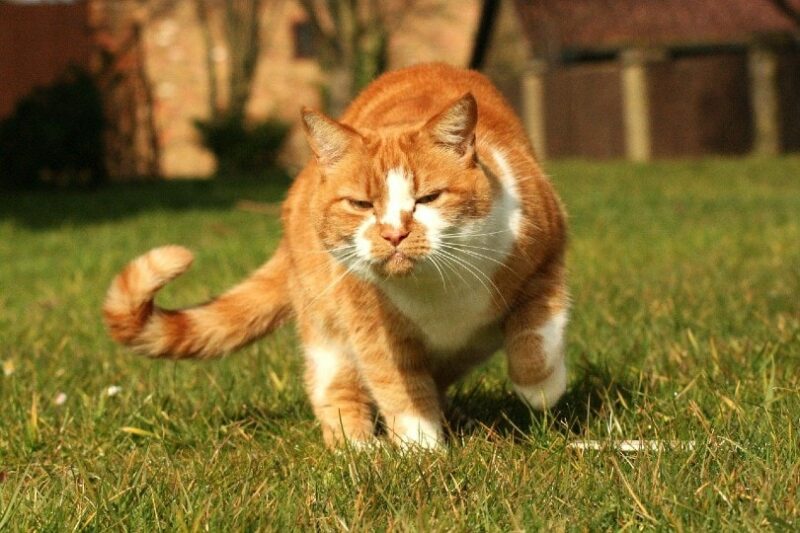Click to Skip Ahead
A limp can be a sign of minor injury to the paw that will heal on its own in a few days. But it can also be a sign of more serious conditions like broken bones, heart conditions, and even neurological issues.
If you are unaware of any physical causes of the limping, and it continues for more than a day, or if you have urgent concerns, you should seek veterinary guidance. Contact the vet’s office, tell them the signs, and they will advise on the best course of action for your feline friend.
Causes of Limping
Cats are agile and adaptable animals. They can suffer injuries that are difficult to detect because they will just get on with things. However, some causes of lameness are identifiable.
Infections lead to warmer areas on the affected leg, and bite wounds can often be felt, but it can be very difficult to determine the cause of lameness in other cases. Some of the more common causes of limping in cats include:
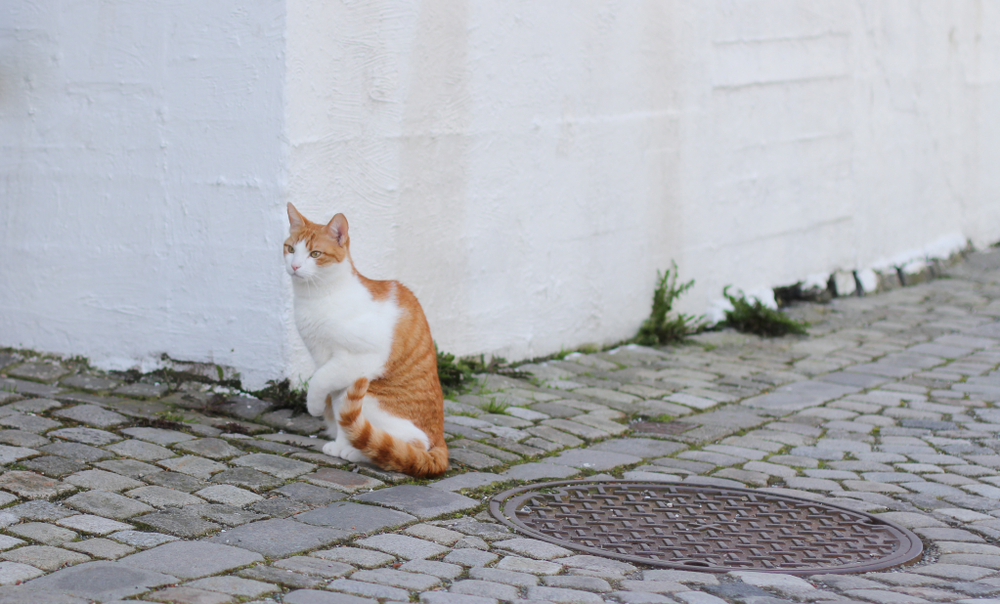
Sprains or Broken Bones
Although they are agile and athletic, cats are also inquisitive and can find themselves in difficult spots. Sprains or broken bones can be caused by traumatic incidents, including car accidents or even fights with dogs, cats, or wildlife. But they can, in some cases, be caused by jumping or falling from a height or getting caught in closing doors.
Arthritis
Arthritis is painful and the pain is caused by inflammation around the affected joint, which some cats will develop as they age. When a cat has arthritis in the hip or other joints of the leg, they may find a lot of activities difficult, such as walking, jumping, and going up or down stairs.
You might notice your cat struggle to stand up and it can even cause discomfort when your cat uses the litter tray.
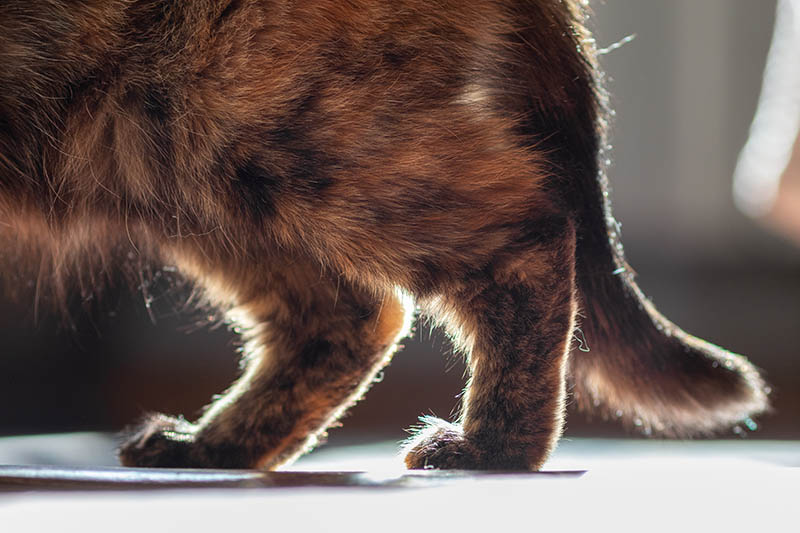
Infections
If an injury such as a cat bite is left untreated, the site of the injury can become infected. Infections are not only painful, but they can linger for long periods if left untreated. Injuries with infections from cat bites are traditionally known as cat bite abscesses in veterinary medicine.
Ingrown Toenail
Just like people can suffer ingrown toenails, so too can cats. This happens when the claw is allowed to grow into the flesh of the foot, and typically occurs in cats when they do not have their claws trimmed regularly, or older cats, that have more difficulty in maintaining their claws. Prevention is better than cure, so you should start trimming your cat’s claws when they are young, making it easier when they get older.
Neurological Diseases
Neurological lameness is uncommon in cats, but it does happen. An example can include trauma to the front leg, which causes a pull injury to the radial nerve, leading to radial nerve paralysis. Neurological injuries can sometimes heal with appropriate care, though not always. Full return of limb function is not guaranteed.
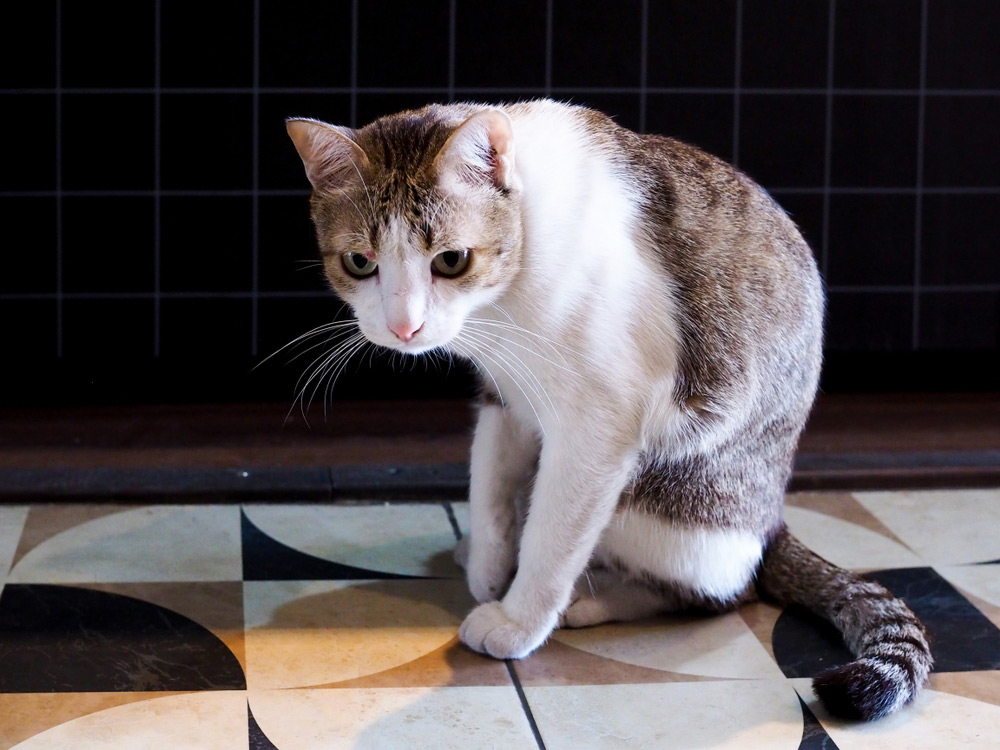
Cancer
Another rare cause of lameness in cats is cancer. Osteosarcoma can cause lameness with some swelling potentially evident. Your vet will likely want to start with X-rays to identify this aggressive cancer. It can require amputation of the affected limb.
Causes of Appetite Loss
When some cats feel under the weather or are experiencing pain, they may suffer appetite loss. Therefore, limping cats may experience changes in their appetites due to pain. Alternatively, the loss of appetite and the limping might not be directly connected, although they could be caused by a single underlying factor. If your cat is not eating, or you note other changes in their appetite, this always warrants a veterinary visit.
How Can You Tell If Your Cat Is in Pain?
Some cats disguise and hide pain and illness. In the wild, they would have to do this to prevent competition from other cats and to avoid being predated by bigger animals. However, some cats will cry out or meow in pain, and limping is a sign that your cat is feeling pain when it walks or puts weight on their paws.
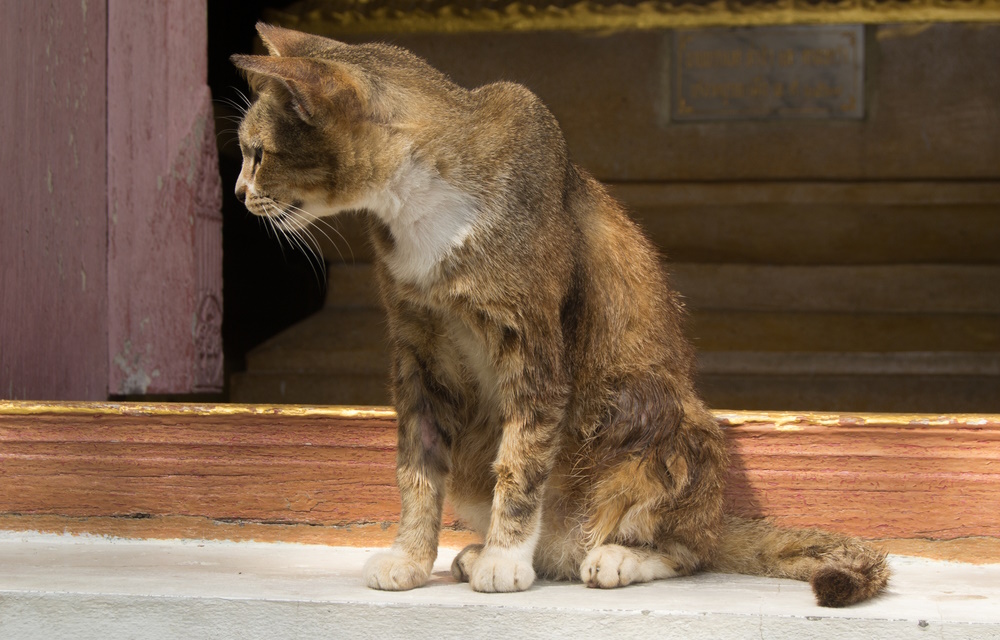
How Should You Move a Cat with Broken Bones?
If you suspect your cat has a broken bone, and need to take them to the vet, you will need to move them carefully to avoid causing more pain and potentially aggravating the problem. Try wrapping your cat in a towel and put it on a solid surface for the car ride.
Can a Limp Heal on Its Own?
Depending on the cause of the limp, the problem could heal on its own, but you should have it checked by a vet first to ensure that it isn’t something major, especially if a limp is accompanied by other problems like a loss of appetite or lethargy.
Minor injuries may heal in a few days so if your cat has stood on something sharp or knocked its foot, your vet might recommend leaving the injury to heal itself.
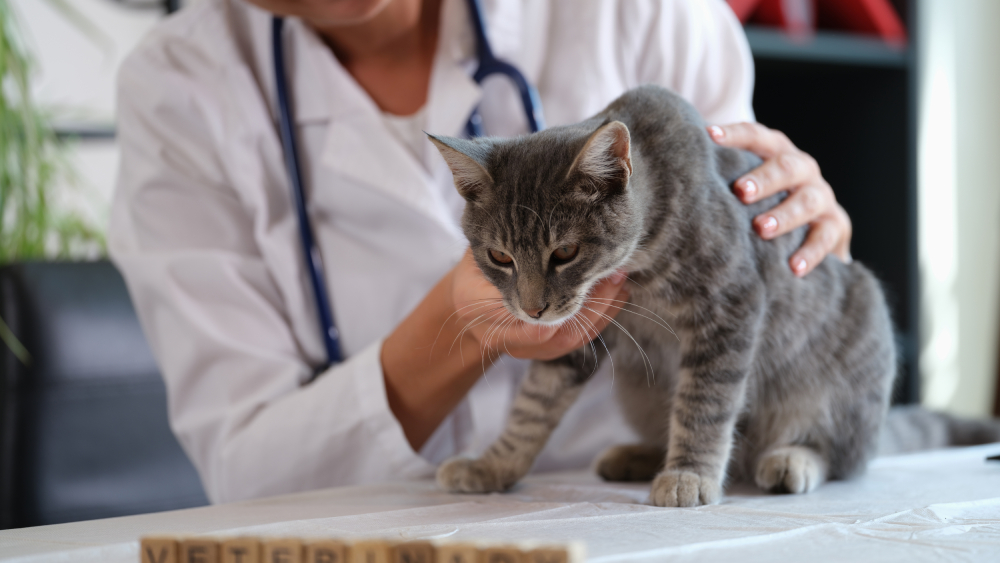

Conclusion
It can be difficult to determine injuries and other problems in cats, especially if they are independent pets that spend a lot of time away from the house. You will need to keep an eye on things like appetite, litter habits, and general demeanor.
If you notice your cat limping and can’t identify the cause, consult your vet, especially if they are eating less. It could be an emergency, and early diagnosis of these conditions will help ensure a better outlook.
Featured Image Credit: lagunabluemolly, Pixabay

